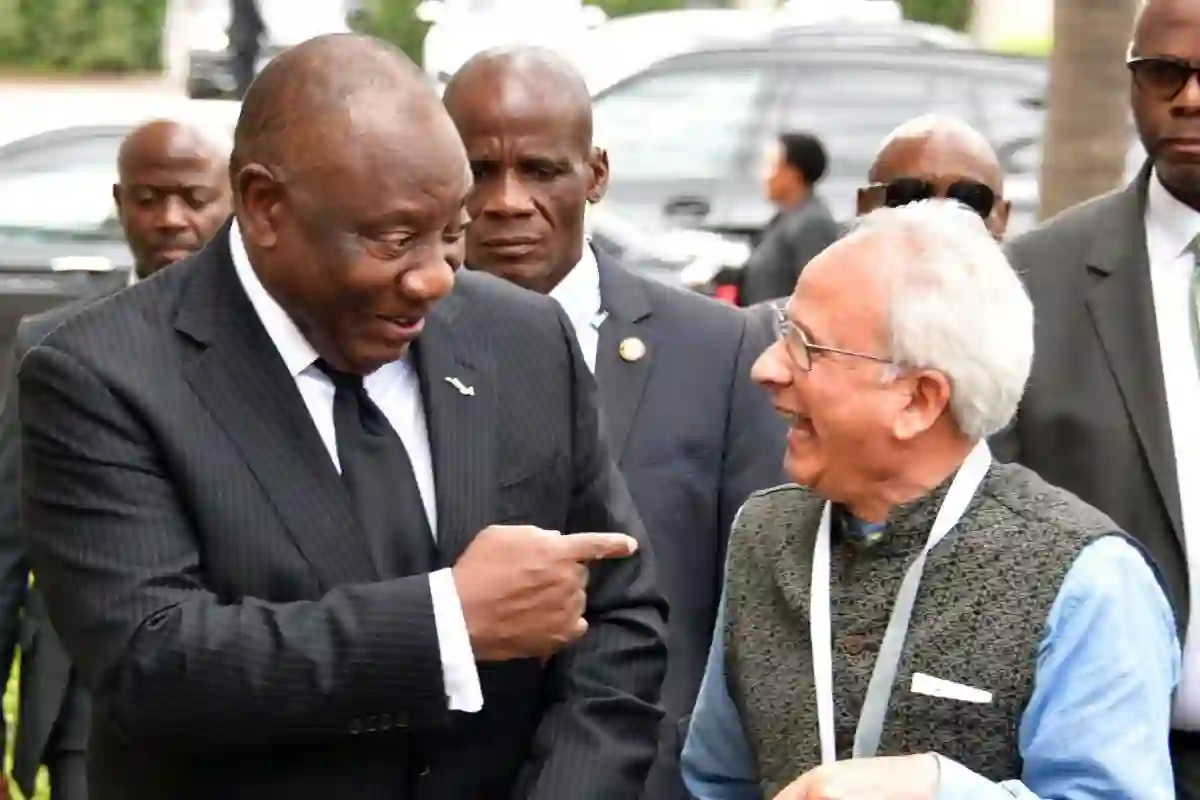In a move that caught many South Africans off guard, President Cyril Ramaphosa has announced a major shake-up in the country’s policing leadership.
On Sunday, 13 July, he appointed Professor Firoz Cachalia as the acting minister of police, replacing Senzo Mchunu — at least temporarily.
The unexpected announcement has sparked a wave of public reaction, with people questioning why Mchunu was removed and whether Cachalia is the right fit for such a demanding role.
Who Exactly Is Professor Firoz Cachalia?
If the name sounds familiar, it’s probably because Professor Cachalia has a long and respected history in both academia and politics.
He’s a law professor at the University of the Witwatersrand (Wits), although he’s due to retire from that position at the end of July.
He also serves as chairperson of the National Anti-Corruption Advisory Council (NACAC) — a key position in the country’s ongoing efforts to tackle deep-rooted corruption.
But his credentials go far deeper.
Born in Benoni in 1958, Cachalia’s political activism began in his youth.
As a university student, he and his brother Azhar were arrested and brutally tortured for handing out pamphlets commemorating the Soweto Uprising.
Just a few years later, they were detained again for their anti-apartheid work and banned from participating in political organisations under the apartheid regime’s Internal Security Act.
A Freedom Fighter Turned Nation Builder
Despite the harsh persecution, Cachalia didn’t back down.
He went on to play a leading role in the anti-apartheid movement, participating in key negotiations during the Convention for a Democratic South Africa (CODESA) and contributing to the early drafts of South Africa’s first democratic constitution.
Over the years, he has held leadership roles in the United Democratic Front (UDF), the ANC, the South African Communist Party (SACP), and in the private sector — all while maintaining a firm stance on justice, equality, and the rule of law.
Fighting Corruption from the Frontline
More recently, Ramaphosa appointed Cachalia to lead the National Anti-Corruption Advisory Council in 2022.
The council is made up of representatives from various sectors and is tasked with tackling fraud, corruption, and criminal activities that undermine governance.
Last year, under Cachalia’s leadership, the council put forward a set of proposals to Ramaphosa, including the ability to investigate criminal corruption independently when it surfaces — a bold and long-overdue suggestion, especially considering the country’s history of corruption scandals.
Public Reactions Are Mixed — But Some Say It’s a Step in the Right Direction
While many are still questioning the sudden transition, some leaders are optimistic about what Cachalia could bring to the police ministry.
Ian Cameron, chairperson of the National Assembly’s Portfolio Committee on Police, praised the move.
He called Cachalia a competent, credible figure who could help restore public trust in the police force — something South Africa desperately needs.
Cachalia will officially step into the role as acting police minister from 1 August.
A New Chapter for Law Enforcement?
Ramaphosa also used the opportunity to announce a commission of inquiry into the alleged infiltration of law enforcement and intelligence agencies by criminal networks.
It’s a serious move that could shake the foundations of South Africa’s justice system — and it sets the stage for Cachalia’s leadership at a particularly tense moment.
Whether this appointment signals real change or just a temporary patch-up job remains to be seen.
But one thing is clear — South Africa is watching closely.
